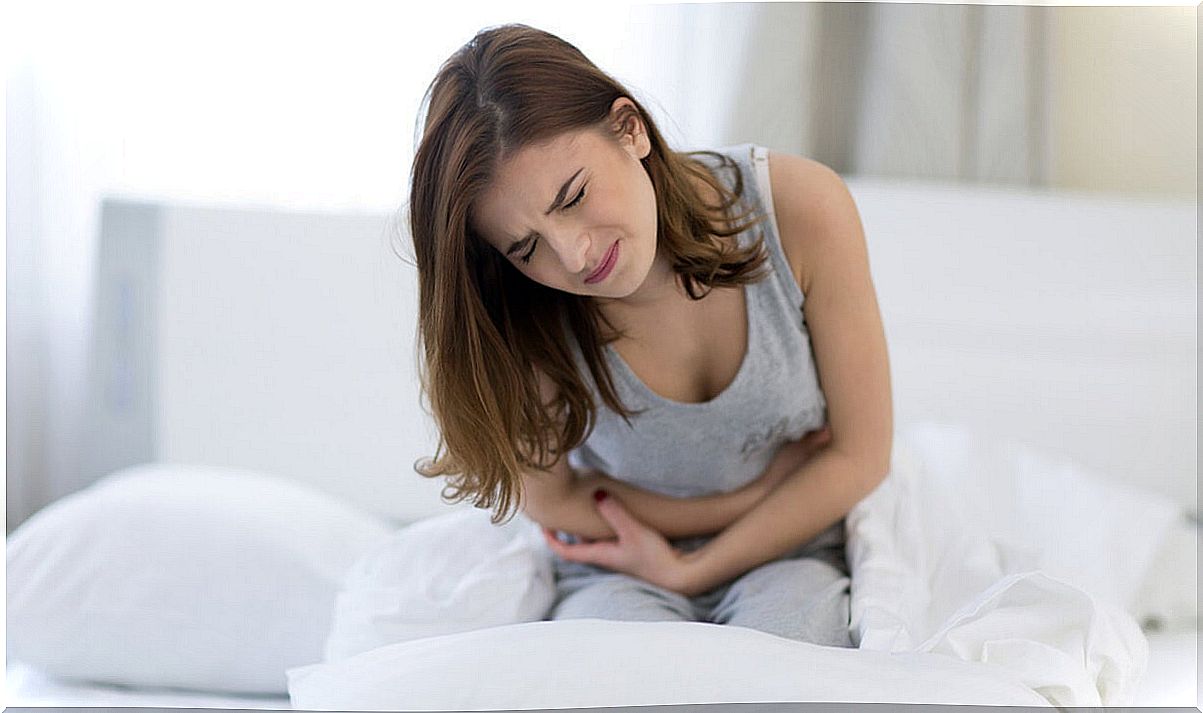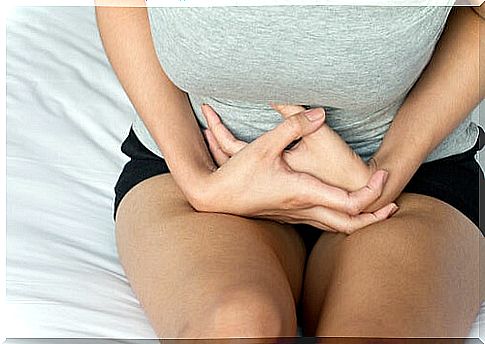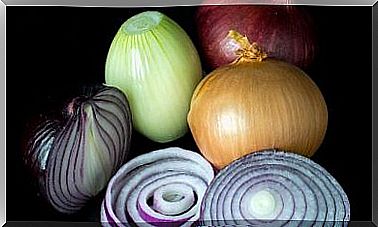Why Is More Gas Generated During Menstruation?
The hormonal changes that occur during menstruation lead to some changes in the body. For this reason, many women have an increase in gas and digestive problems during their period.

Although at first it seems that menstruation does not have a direct relationship with the increase in gas, the truth is that there is a connection between one process and the other. This despite the fact that, apparently, the digestive system and the reproductive system are independent of each other.
For many women, excess gas is one of the symptoms that accompanies menstruation. This occurs in at least two-thirds of the female population. Those who, in addition, already have a history of digestive problems, suffer this situation more severely.
So far no exact and detailed explanation has been found of why this phenomenon occurs. However, it is known that the hormonal ups and downs that the menstrual cycle brings with it end up affecting the gastrointestinal processes. Let’s look at this in more detail.
The origin of gases

It is normal to have gas and pass it, although there is a certain social taboo and it causes embarrassment in some people. It is considered completely natural for a person to pass gas between 6 and 20 times a day. In turn, it is normal to burp three or four times after eating.
Gas is generated in the intestine or stomach as food breaks down in the body. Some foods produce more gas than others. Likewise, in some people they are more frequent than in others, without this implying some type of pathology.
In addition to some foods, food intolerances or the intake of certain medications, menstruation also gives rise to a greater number of gases. This is due to changes in hormone levels in the body. That is why it is also a frequent situation during menopause.
Menstruation and digestion
During menstruation, great hormonal changes occur in the body. This often affects the digestive system. It is normal for these types of problems to occur during the menstrual cycle :
- Constipation. Generally, it occurs during ovulation, as the progesterone cycles decrease. The result is the relaxation of the muscles of the digestive tract. This, in turn, creates greater difficulties in disposing of waste.
- Diarrhea. Diarrhea is common in the days before your period starts. It is because at that time there is excess serotonin and oxytocin, which leads to greater mobility in the intestines.
- Gases. Hormonal changes significantly alter the rhythms of digestion. This leads to more gas buildup during the menstrual period.
Gas during menstruation

The reason why gas increases during menstruation is not precisely known. However, according to the available data, up to a third of women who do not normally have digestive difficulties have problems with gas during menstruation.
It is a fact that progesterone peaks days before your period. As we have pointed out, this is what initially affects the normal functioning of digestion. Sometimes there is diarrhea, constipation, both, or a general malaise called “intestinal stress.”
In this regard, one of the studies carried out indicates that there is a relationship between digestive problems and substances called prostaglandins. These act like hormones and are responsible, to a great extent, for the so-called menstrual cramps.
Apparently, those who suffer from gastrointestinal problems during menstruation, also have a higher concentration of prostaglandins in the body. This leads to intestinal difficulties that also generate a greater amount of gas during menstruation.
Additional Information
The bacteria in the intestines also change with each menstrual cycle. This is because hormonal fluctuation affects these bacteria and changes their composition in the intestine. Also, this changes bacterial fermentation. The consequence is that the gases during menstruation have a more intense and fetid odor.
Some foods are especially irritating during your period, particularly dairy. It should be remembered that these do not include only milk, but all its derivatives, such as cheese, butter, yogurt and all those processed foods that include milk in their composition.
Coffee tends to have similar effects. Both this and dairy products have an even more powerful effect in those women who previously have a gastrointestinal problem. Those who suffer from irritable bowel syndrome have more gas and more severe symptoms during menstruation.









